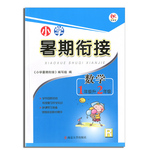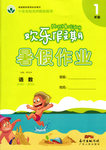
____________that the trade between the two countries reached its highest point.
A. During the 1990’s B. That it was in the 1990’s
C. It was in the 1990’s D. It was the 1990’s
 学而优暑期衔接南京大学出版社系列答案
学而优暑期衔接南京大学出版社系列答案 Happy holiday欢乐假期暑假作业广东人民出版社系列答案
Happy holiday欢乐假期暑假作业广东人民出版社系列答案科目:高中英语 来源:云南省昆明市2012届高中新课程高三摸底调研测试英语试题 题型:016
The saleswoman told me that the T-shirt could ________ many people's attention, but it was not true.
pay
cast
draw
get
查看答案和解析>>
科目:高中英语 来源:四川省成都外国语学校2011-2012学年高一下学期期末考试英语试题 题型:050
| |||||||||||||||||||||||||||||||||||||||||||||||||||||||||||
查看答案和解析>>
科目:高中英语 来源:2006年高考试题(全国卷二)解析版 题型:阅读理解
“Who made you T-shirt?” A Geo letdown University students raised that question. Piertra Rivoli, a professor of business, wanted to find the answer. A few weeks later, she bought a T-shirt and began to follow its path form Texas cotton, rim to Chinese factory to charity bin (慈善捐赠箱). The result is an interesting new book, The tran’s of a T-shirt in the Global Economy (经济).
Following a T-shirt around the world in a way to make her point more interesting, but it also frees Rivoli from the usual arguments over global trade. She goes wherever the T-shirt goes, and there are surprises around every corner. In China, Rivoli shows why a clothing factory, even with its poor conditions, means a step towards a better care for the people who word there. In the colorful used-clohting markets of Tanzania, she realizes that, “it is only in this final stage of life that the T-shirt will meet a real market,” where the price of a shirt changes by the hour and is different by its size and even color, Rivoli’s book is full of me able people and scenes, like the noise, the bad air and the “muddy sweet smell (泥土香味) of the cotton,” she says. “Here in the factory, Shanghai smells like shallot water Texas.”
Rivoli is at her best when making those sorts of unexpected connections. She even finds one between the free traders and those who are against globalization. The changes opened up by trade are vase, she argues, but free markets need the correcting force of politics to keep them in check. True economic progress needs them both.
1.What do we learn about Professor Rivoli?________
A. She used to word on cotton farm.
B. She wrote a book about world trade.
C. She wants to give up her teaching job.
D. She wears a T-shirt wherever she goes.
2.By saying T-shirt “meet a real market”, Rivoli means in Tanzania _______.
A. cheaper T-shirts are needed B. used T-shirts are hard to sell
C. prices of T-shirts rise and fall frequently D. prices of T-shirts are usually reasonable
3.What does the word “them” underlined in the last paragraph refer to? _______
A. Free markets. B. Price changes.
C. Unexpected connections. D. Chances opened up by trade.
4.What would be the best title for the text? ________
A. What T-shirts Can Do to Help Cotton Farms B. How T-shirts Are Made in Shanghai
C. How T-shirts Are Sold in Tanzania
D. What T-shirts Can Teach Us
查看答案和解析>>
科目:高中英语 来源:0101 期末题 题型:阅读理解
查看答案和解析>>
科目:高中英语 来源: 题型:阅读理解
Who made your T-shirt?” A Geowetown University student raised that question. Pietra Rivoli, a professor of business, wanted to find the answer. A few weeks later, she bought a T-shirt and began to follow its path from Texas cotton form to Chinese factory to charity bin (慈善捐赠箱). The result is an interesting new book, The Travel’s of a T-shirt in the Global Economy.
Following a T-shirt around the world in a way to make her point more interesting, but it also frees Rivoli from the usual arguments over global trade. She goes wherever the T-shirt goes, and there are surprises around every corner. In China, Rivoli shows why a clothing factory, even with its poor conditions, means a step toward a better life for the people who work there. In the colorful used-clothing markets of Tanzania, she realizes this, “it is only in this final stage of life that the T-shirt will meet a real market,” where the price of a shirt changes by the hour and is different by its size and even color. Rivoli’s book is full of memerable people and scenes, like the noise, the bad air and the “muddy-sweet smell of the cotton. ”She says, “Here in the factory, Shanghai smells like Shallowater Texas. ”
Rivoli is at her best when making those sorts of unexpected connections. She even finds one between the free traders and those who are against globalization. The chances opened up by trade are vast, she argues, but free markets need the correcting force of politics to keep them in check. True economic progress needs them both.
55. What do we learn about Professor Rivoli?
A. She used to work on a cotton farm.
B. She wrote a book about world trade.
C. She wants to give up her teaching job.
D. She wears a T-shirt wherever she goes.
56. By saying T-shirt “meet a real market”, Rivoli means in Tanzania_______.
A. cheaper T-shirts are needed.
B. used T-shirts are hard to sell
C. prices of T-shirt rise and fall frequently
D. prices of T-shirt are usually reasonable
57. What does the word “them” underlined in the last paragraph refer to?
A. Free-markets.
B. Price changes.
C. Unexpected connection.
D. Chances opened up by trade.
58. What would be the best title for the text?
A. What T-shirt Can Do to Help Cotton Farms
B. How T-shirt Are Made in Shanghai
C. How T-shirt Are Sold in Tanzania
D. What T-shirt Can Teach Us
查看答案和解析>>
湖北省互联网违法和不良信息举报平台 | 网上有害信息举报专区 | 电信诈骗举报专区 | 涉历史虚无主义有害信息举报专区 | 涉企侵权举报专区
违法和不良信息举报电话:027-86699610 举报邮箱:58377363@163.com